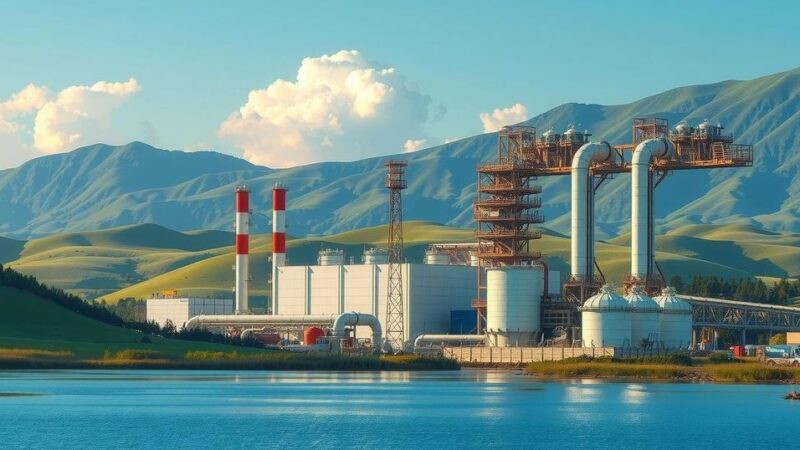Michael Swanson, chief agricultural economist at Wells Fargo, suggested that proposed tariffs on Mexican imports could lead Mexico to seek agricultural products from Brazil and Argentina. He highlighted the upward trend in farm income alongside the consolidation of farms, emphasizing the importance of individualized crop insurance solutions for farmers. Swanson also noted changes in ethanol demand due to rising electric vehicle usage and cautioned about various economic predictions.
In a recent address, Michael Swanson, chief agricultural economist at Wells Fargo, discussed the potential impact of President Trump’s proposed 25% tariffs on Mexican imports. He suggested that these tariffs could prompt Mexico to invest in port infrastructure to facilitate the import of agricultural products from Brazil and Argentina, a development that could significantly affect U.S. agricultural markets.
Swanson noted that Mexico currently lacks the necessary port facilities to import a substantial volume of South American farm products. He emphasized that while U.S. tariffs might incentivize the construction of these ports, it could create competitive pressure for U.S. farmers, who are already facing challenges such as low commodity prices and rising operational costs.
Despite ongoing difficulties, Swanson reported an upward trend in net farm income and addressed the demographic shift within the farming sector, indicating that there are fewer farmers now compared to previous years. He attributed the anticipated increase in farm income to a recent $10 billion federal aid package, though he highlighted that such funds often require significant prior investment from farmers.
Regarding farm consolidation, Swanson explained that while larger farms may not be inherently superior, successful farmers often expand their operations, leading to heightened competition for land. He asserted that government support tends to benefit larger operators, potentially making it difficult for smaller farms to acquire land needed for their businesses.
On the topic of crop insurance, Swanson advocated for a more nuanced relationships between insurers and individual farmers, promoting an account management approach rather than merely selling policies. He praised crop insurance as an essential tool in mitigating risk, explaining that coverage costs are relatively low but acknowledged some farmers opt not to participate, especially during downturns in income.
Looking ahead, Swanson anticipated that the shift towards electric vehicles could diminish ethanol demand by 2045. He cautioned that any forecast regarding recession should be viewed critically, as predictions often evolve with new information. Overall, he called attention to the complex landscape of farming economics, where land values play a pivotal role in farmers’ financial stability.
The discussion stems from insights regarding the agricultural sector amid ongoing trade tensions and tariffs introduced by the U.S. administration. As international trade dynamics shift, it becomes crucial to understand potential repercussions on regional farming economies, especially with the increasing consolidation within the agricultural community. Swanson’s observations carry weight due to his expertise and current trends in farming income and demographics.
In summary, Michael Swanson emphasized that impending tariffs could compel Mexico to pursue agricultural imports from South America, which might increase competition for U.S. farmers. He acknowledged the challenges faced by farmers in a consolidating industry, where government support often favors larger operations. The need for effective crop insurance remains critical for farmers navigating financial ups and downs in a complex economic environment.
Original Source: www.thefencepost.com






